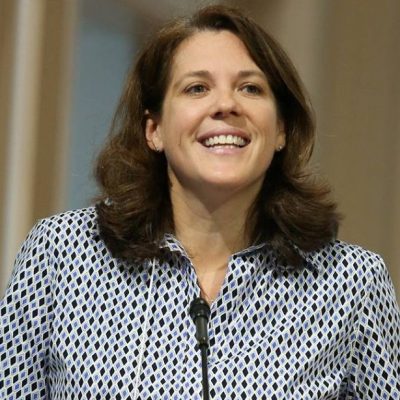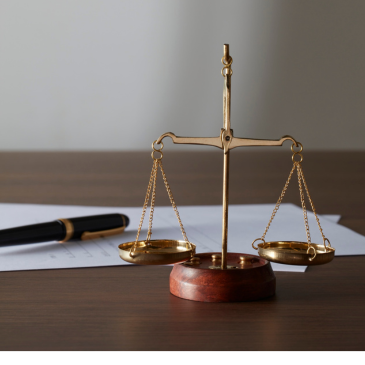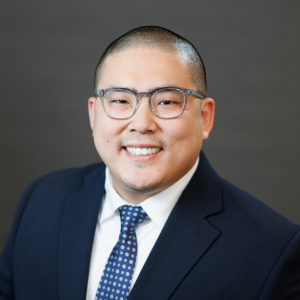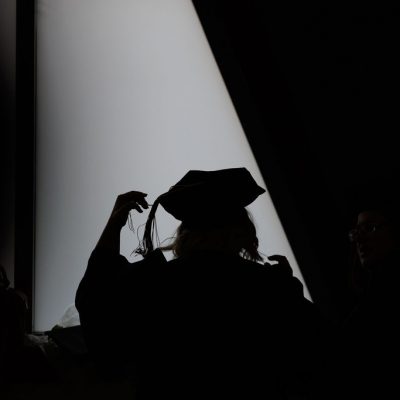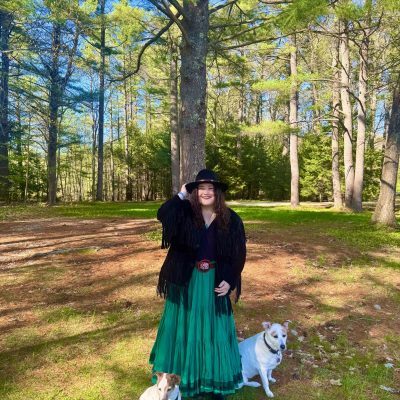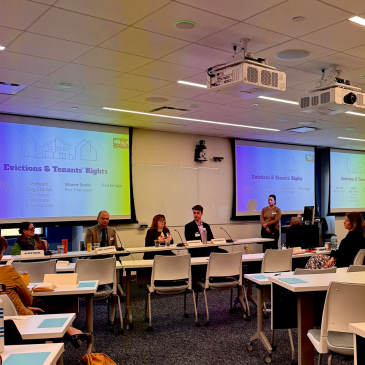Maine Law’s Black Law Students Association (BLSA) hosted a BIPOC Networking Symposium on Feb. 1 at the Maine Center in downtown Portland. The event was organized in conjunction with The Third Place, a networking and coworking organization working to address gaps in the state’s Black cultural infrastructure. Members of the Maine Law community, the greater Maine BIPOC professional community, and members of The Third Place gathered to enjoy catering from local Black-owned businesses, network, and discuss ways to better support BIPOC law students and professionals in and outside the local legal community.
The event was a fitting ceremony to kick of Black History Month, Maine Law President and Dean Leigh Saufley noted, adding that she was enormously proud of BLSA and other student groups working towards a more just and equitable society. “Their efforts are necessary and welcome as we work to promote a community that has commitment to diversity, equity and inclusion at its core,” Saufley said.
Andy Almonte, a 2L and outgoing president of Maine Law’s BLSA chapter, added that it is the people in the room, their energy, compassions, and drive, that act as catalysts for change.
“We are the next generation of community leaders and we will effectuate the change we want to see in our professional space,” he added.
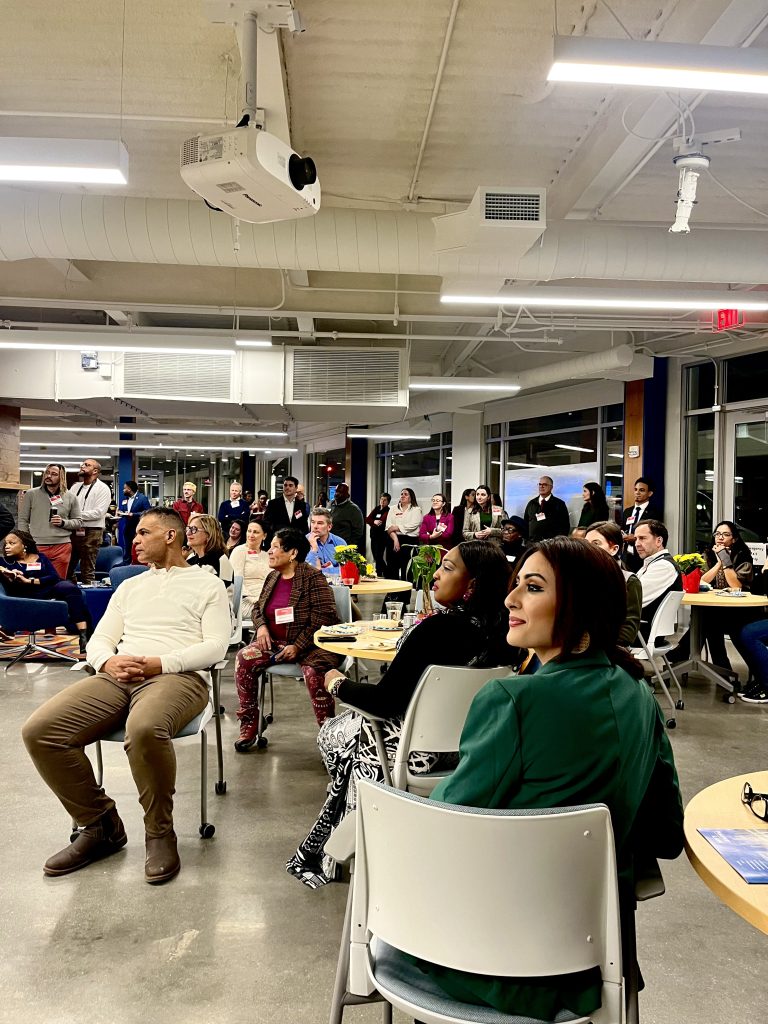
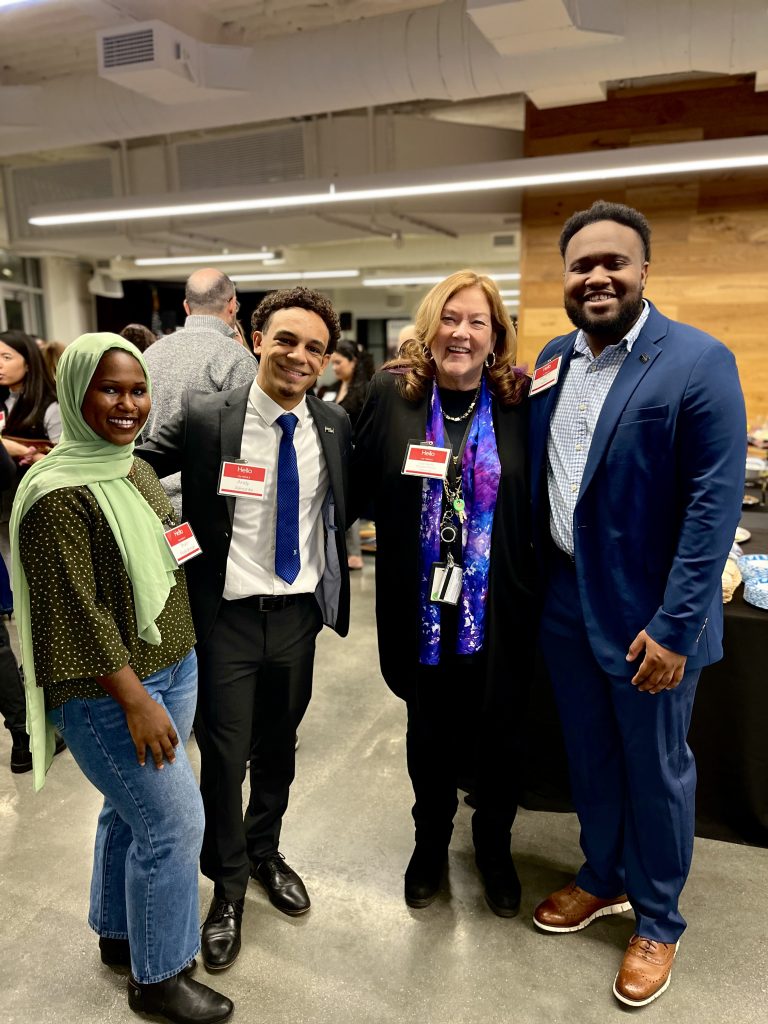
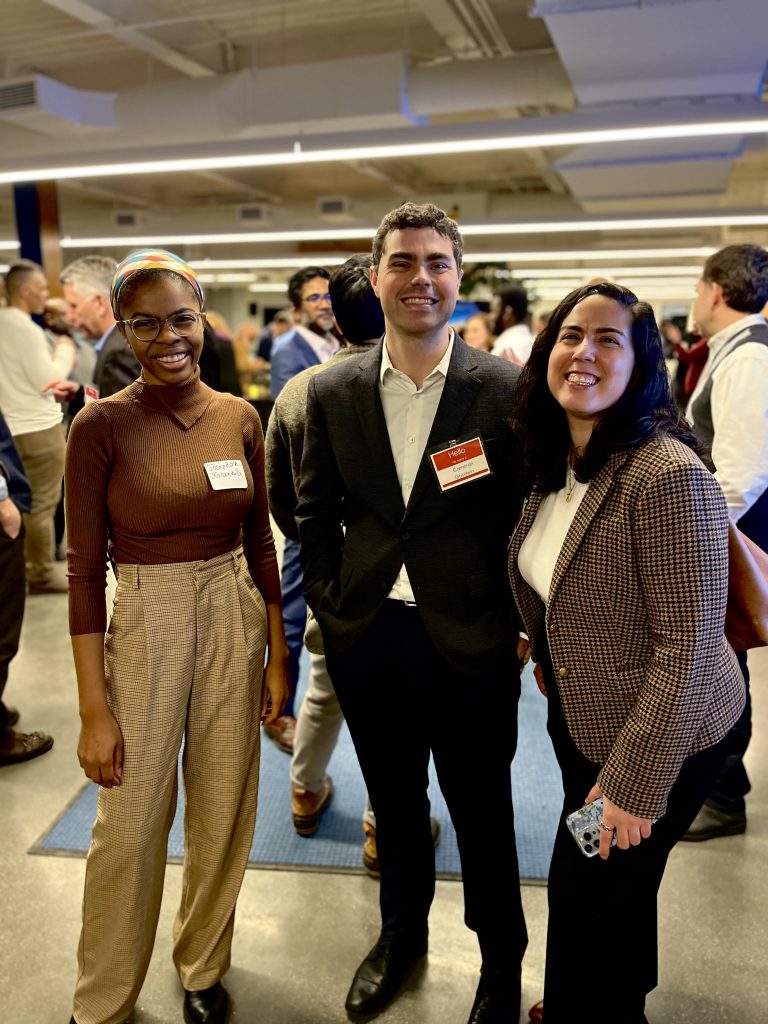
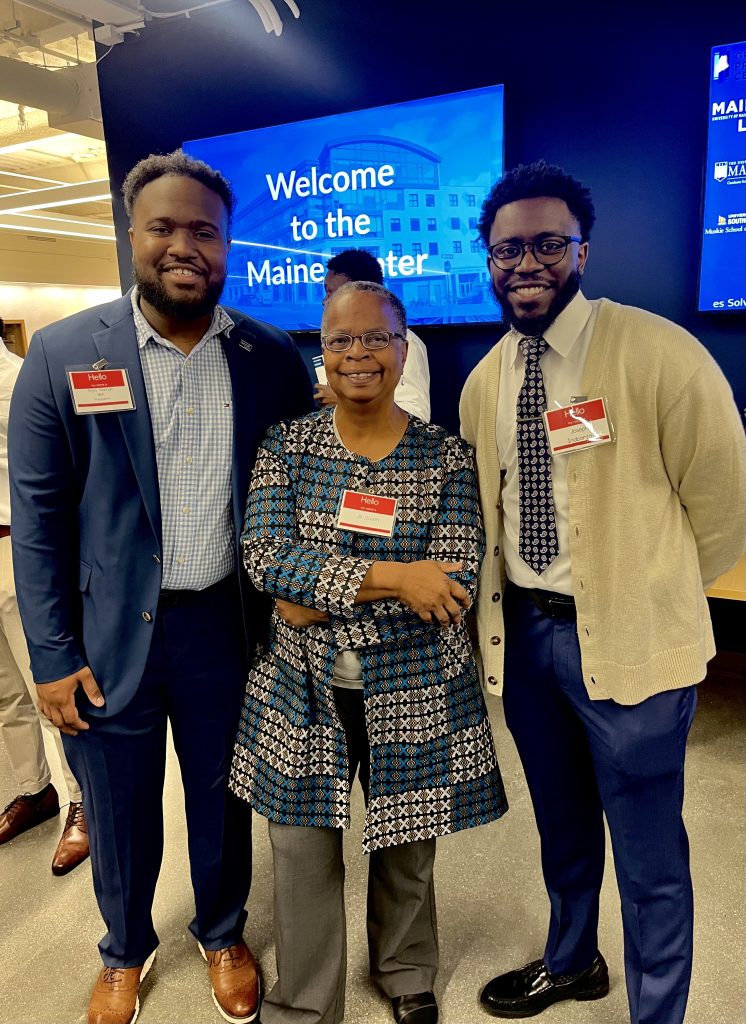
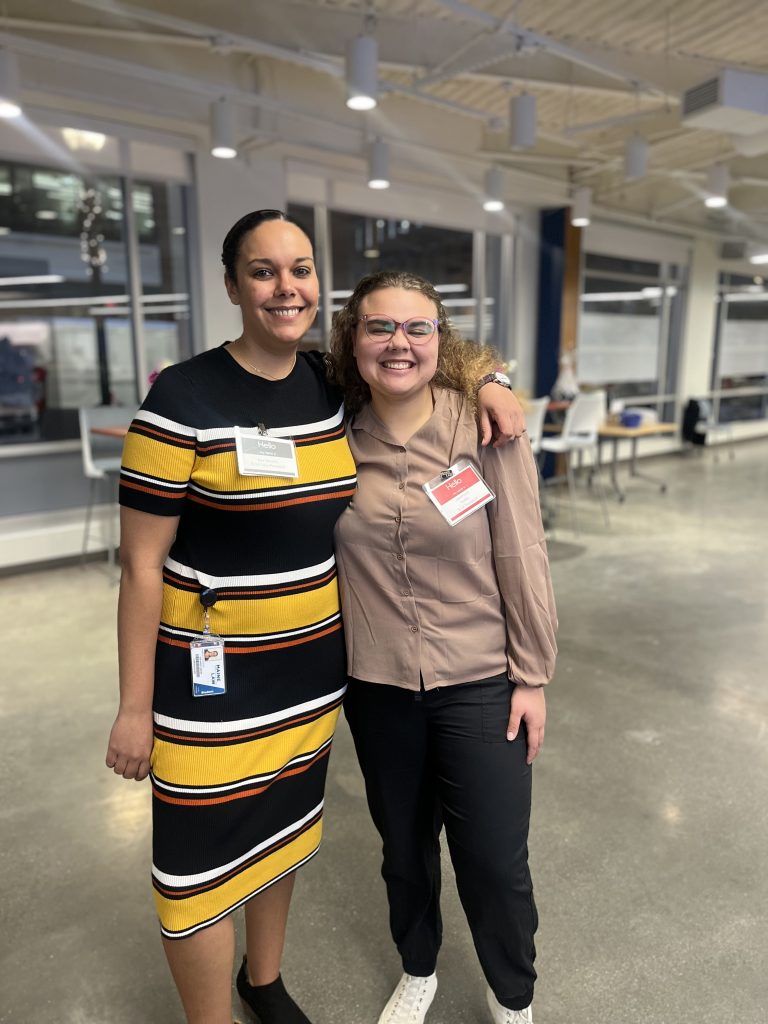
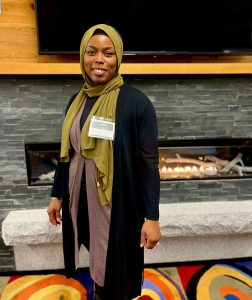
Space is an important concept to Adilah Muhammad, founder, President, and Executive Director of The Third Place. She founded the coworking studio as a dynamic and versatile space to meet the needs of Black non-profits and entrepreneurs. Its name is derived from sociological terminology, denoting a place where people spend time that isn’t home (first place) or work (second place). Muhammad holds that communities need a “third place” where they can feel safe, centered, and supported to fully explore their creativity and potential. This idea is crucial ensuring Maine is “the way life should be” for everyone across the state.
“We are very invested in amplifying the voices of Black people wherever they are,” Muhammad added. “We have a network in Maine that can amplify those voices and we are only going to get bigger, louder, and stronger.”
Events like the Maine Center symposium further that effort. The symposium was the brainchild of former BLSA vice president Jevaun Quinn, and current leadership hopes to make it a recurring event. Almonte encouraged members of the Maine Law and Maine BIPOC communities to keep showing up in ways that support their communities and their values. He also had a direct message to many of the current and prospective Black Law students in the room: “You deserve to be in this space.”
BLSA also organized four Lunch & Learn February events in celebration of Black History Month. The series included a screening of the documentary “The American Diplomat,” A BIPOC Legislator Panel with Pious Ali, Tori Pelletier, and Dustin Ward, a Judiciary Panel featuring Justice Rick Lawrence and Judge Talesha L. Saint-Marc, and a presentation about Malaga Island from Maine State Archivist Kate McBrien. The month-long series was organized with generous support from Drummond Woodsum.


